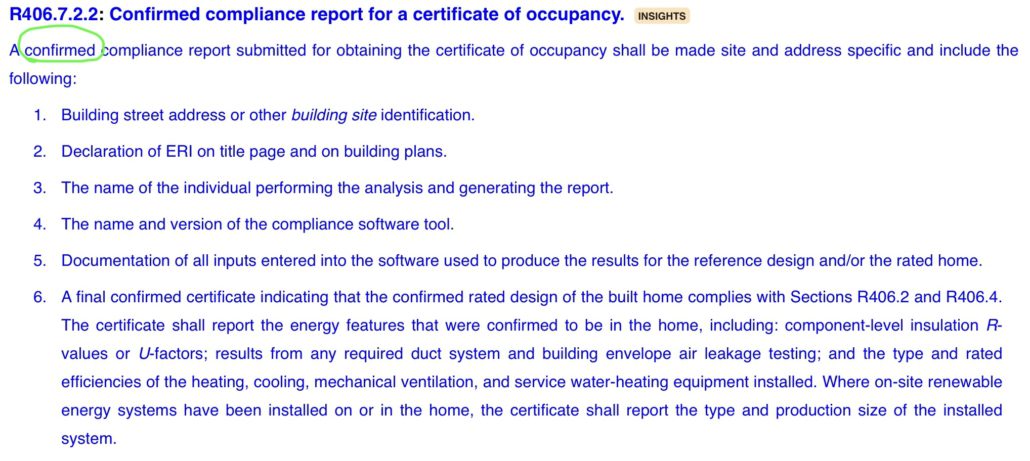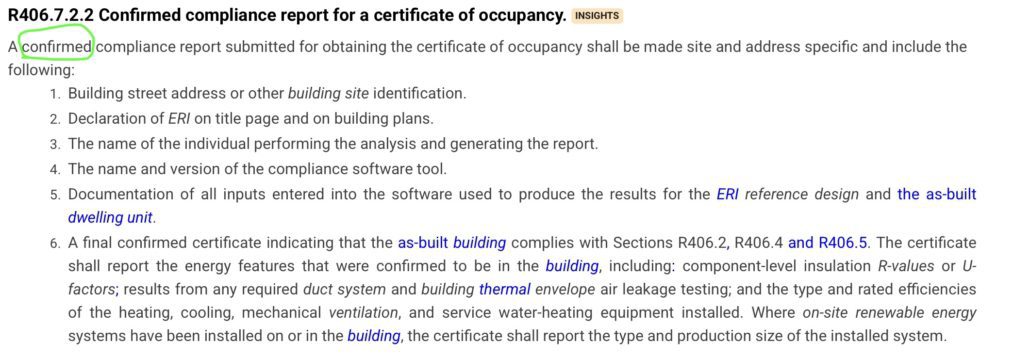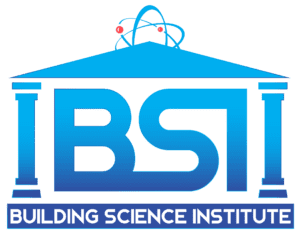Quality Assurance and the (R406) ERI
I’ve heard recently some disturbing news: that the R406 ERI compliance path in the 2015, 2018, 2021, and now 2024 IECC Residential Codes do NOT require quality assurance.
First: that’s news to me.
Second: that’s a bold-faced lie if I ever heard it.
Let me provide some background if you’re unfamiliar with the R406 ERI. The International Energy Conservation Code (IECC) added a compliance path called the R406 Energy Rating Index (ERI) starting in the 2015 IECC. This compliance path uses a snapshot of the ANSI 301 Standard, with some tweaks.
This allows jurisdictions to have a performance path and builders get more flexibility. Which they almost always appreciate. It also means there is a consistent calculation (in theory) for that specific compliance path – as the ANSI 301 Standard is a “constant maintenance” standard, receiving addenda and the possibility of modifications after a publication date. So rather than having the calculation modified a year after the code is adopted, it is consistent throughout a given three-year cycle.
Very nice!
Importantly, the code specifically references ANSI 301 in R406.4, and if you have a copy with commentary, it’ll tell you that in the added language.
And then it starts using language such as “confirmed as-built dwelling unit”. This is used a couple times in R405, but almost all uses of it occur in Section R406.
Here are some examples I’ve pulled from the 2021 and 2024 IECC:




Here you can see that “confirmed” is mentioned as part of the R406.5 ERI-based compliance. But you know what isn’t found? A definition for the term “confirmed”.
That’s because it is pulled directly from ANSI 301, that standard that underpins this specific compliance path. Let’s take a gander at what ANSI 301-2022 defines a “Confirmed” rating as:

That definition seems fairly cohesive with what we see in the R406 Compliance path, no? A “confirmed rating” appears equivalent to a “confirmed, as-built dwelling unit”. To me, that means a “confirmed compliance report” will necessarily need to comply with ANSI 301’s requirements for a confirmed report and label.
Since it appears that the R406 ERI compliance path concurs with the ANSI 301 Standard’s definition of Confirmed, let’s see what else is required of a confirmed rating…

Wait, what’s this: a confirmed rating shall be subjected to Quality Assurance requirements?
But I was reliably informed that such as thing was NOT required in ANSI 301, let alone the R406 compliance path!
Look, at this point maybe ask yourself some questions. Like:
- Who is this message about the “lack of QA in R406” coming from?
- Why is this particular message being spread?
- What could the messenger possibly gain by spreading it?
And if it appears that there is a push to require a proprietary variant of the ANSI 301 Standard, rather than the continuous maintenance of ANSI 301, maybe the messenger isn’t sharing it for good cause…
Until next time!
Citations:
- 2024 IECC: https://codes.iccsafe.org/content/IECC2024P1/chapter-4-re-residential-energy-efficiency#IECC2024P1_RE_Ch04_SecR406
- 2021 IECC: https://codes.iccsafe.org/content/IECC2021V1.0/chapter-4-re-residential-energy-efficiency#IECC2021V1.0_RE_Ch04_SecR406.1
- ANSI 301-2022: https://codes.iccsafe.org/content/RESNET3012022P1/chapter-7-certification-and-labeling
Notes:
- You may hear in response to this informative post that no, in fact there has NEVER been a QA requirement for the R406 compliance path. I can tell you from personal experience that since the 2015 IECC included it, Verifiers were mandated by the oversight entities they operated under to register any R406 ERI projects with their oversight entity’s Registry. You would be able to generate final compliance reports for the Prescriptive, Performance, and UA paths, but you could NOT do that for the R406 ERI unless it was registered – hence the term “confirmed” was included. Whether that has changed in the last year and a half is irrelevant – the expectation was always that additional QA would be performed on an R406 ERI project due to the requirements of ANSI 301 itself. So even if the R406 ERI compliance path itself didn’t require it, the oversight entities wouldn’t allow software tools to generate an R406 ERI confirmed certificate unless it was registered with them. The more you know!
- And for what it’s worth, any project pursuing R406 ERI compliance under BSI has always and will always receive oversight from BSI, due exactly to the language found in ANSI 301 regarding requirements on confirmed ratings. As an EPA- and DOE-recognized National Home Certification Organization (HCO), we are considered an Approved Rating Provider, since the EPA and DOE are actual regulatory bodies and not some self-appointed organization.
- Shameless plug: if you’re interested in learning more about the history of home energy rating systems, check out our page!

